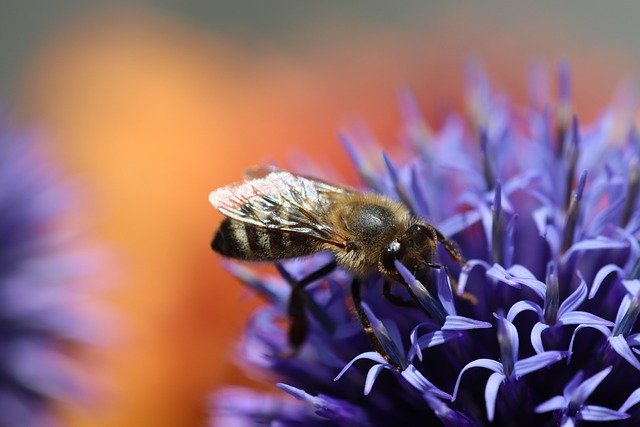
Biodiversity matters by Shaun Nugent, Emissis
The term biodiversity is derived from ‘biological diversity’ and refers to the variety of all life from plants and animals to germs and fungi. It also encompasses the ecosystems that support life.
Biodiversity provides us with some simple requirements such as food and water, shelter, medicine, and fuels. Biodiversity also provides natural services such as pollination, seed dispersal, climate regulation, water purification, nutrient recycling, and pest control.
Biodiversity is in decline across the world to varying degrees. We all know that infamously the Amazon Forest has been hit hard for many years. It has a rich biodiversity with over 3 million species living in the rainforest and over 2,500 tree species, but the ecosystem is being altered by human activity such as deforestation for both wood and land creation for farmers.
Deforestation in the Amazon from August 2018 to July 2019 equalled 3,800 sq. miles and from August 2019 to July 2020 this increased to 4,281 sq. miles, an increase of 12.6%.
In the UN’s Sustainable Development Goal 15 which tackles biodiversity and ecosystems; member states reaffirmed (at the Rio+20 Conference) the “critical role in maintaining ecosystems that provide essential services, which are critical foundations for sustainable development and human well-being”.
Globally, reduction in biodiversity is at an all-time high. In a 2019 report by the Intergovernmental Science-Policy Platform on Biodiversity and Ecosystem Services, they state that ‘25% of species in assessed animal and plant groups are threatened’ and ‘around 1 million species already face extinction’.
Climate change
The impacts of global warming on biodiversity (including ecosystems) are due, in part, to how we have altered the land. Turning natural areas into towns and cities, and by developing agricultural fields; but also removing trees and plants has reduced the natural environments’ ability to cool the planet.
How we have adapted the planet to serve only our human needs, has also led to more droughts and floods and created more conflict over water rights and food security, to mention just a few.
Sometimes it is hard to see how the climate change we are causing and its effects on biodiversity affect us on a day-to-day basis. Looking at just one species, insects, may help. Many insects are pollinators. If we lost pollinators, we would also lose over one-third of all crop production. This would have a wide societal impact; we would lose important foods that are important for health, and more dangerously less food would create food shortages leading to disputes and conflicts. We would also lose plant species – potentially undiscovered to modern science, that may lead to future medicines. Many drugs and chemical compounds used in therapies come from plants.
How can businesses directly tackle climate change?
In the UK, greenhouse gas emissions from business activity account for around one-third of all UK emissions. So, what can businesses do to help tackle biodiversity issues caused by climate change?
Businesses can take up the challenge to become net zero operations.
To become net zero, one of the first steps should be to invest in solutions that reduce energy consumption. Net zero differs from being carbon neutral – net zero is achieved by reducing energy consumption to its lowest level and then using renewable electricity and green gas for the remaining energy needed.
Simply switching to 100% green energy and not tackling consumption results in a business being carbon neutral – not net zero. The simple fact is, the UK does not have enough space to be able to generate all the green energy society needs, which is why businesses (and consumers) need to drastically cut energy use. This will then allow our green energy generation, as it increases with the government’s Ten Point Plan for a Green Industrial Revolution, to be able to match our energy demand. This is why net zero is the world’s answer to stopping climate change and carbon neutral is not.
Finally, businesses should also transition to an electric vehicle fleet as soon as possible and support electrification by installing EV charging across business premises for customers, visitors, and staff to use.
How can businesses directly improve biodiversity?
A few things all businesses can do locally:
- Create habitats on your site or building with a wildlife supporting garden
- Encourage birds and bats with shelters, and feeders for winter
- Encourage staff involvement in nature-based plans and activities
- Support local or regional wildlife charities and social enterprises
Here are two initial steps you can take to really incorporate biodiversity into your business:
- Integrate your biodiversity plan into your Environmental Management System so you can track results
- Develop a responsible sourcing programme and include your supply chain
If you are looking for an expert partner to help you on your net zero journey – we are here to help. We deliver a powerful suite of solutions that reduce your carbon emissions, save you money with lower energy bills and generate revenue from being a more flexible energy user with the help of today’s leading technology.
Final thought
While we might not be able to prevent all the negative man-made impacts on biodiversity, with knowledge and strong government policies, such as net zero, we can adapt to leave less of a mark on our planet and its biodiversity – leaving fingerprints rather than footprints.
If you are looking for an expert partner to help you on your net zero journey to tackle climate change, we are here to help. See our website for further details.
Emissis is a proud sponsor of Net Zero Week 2021. Going net zero means a better business and a better environment for everyone. During #NetZeroWeek2021 you can access dozens of exclusive live webinars/podcasts; all free-to-attend.
See the confirmed live webinar programme taking place around Net Zero Week 2021 – many more events will be confirmed in the coming weeks.